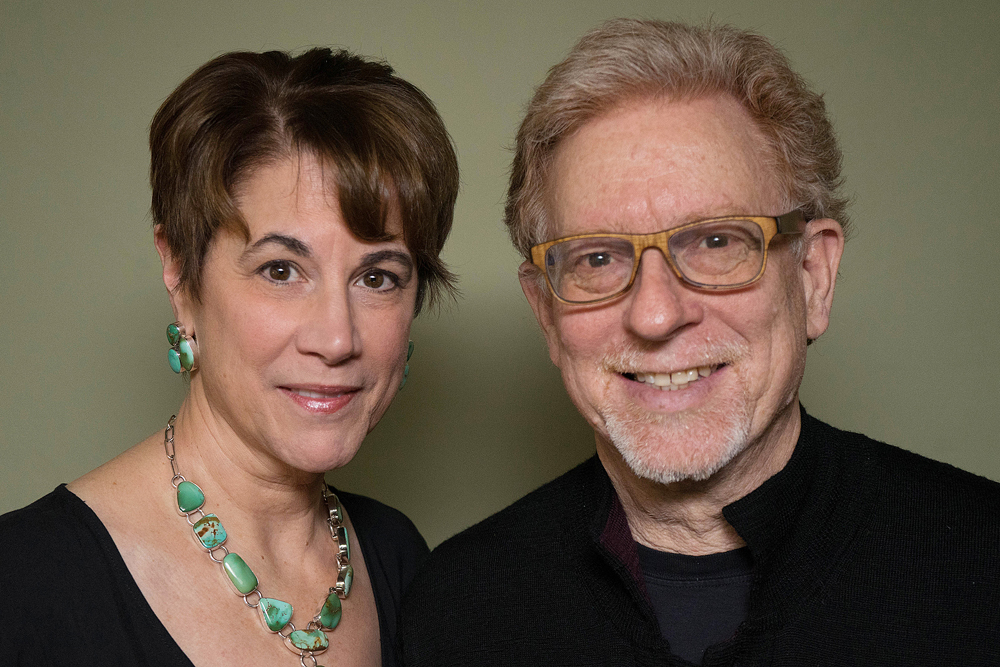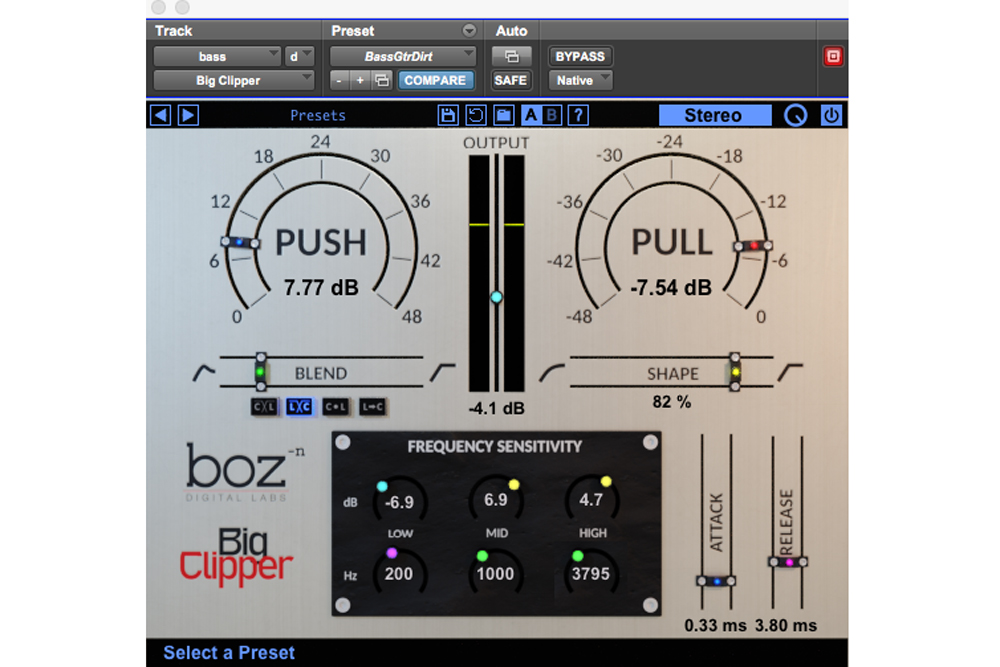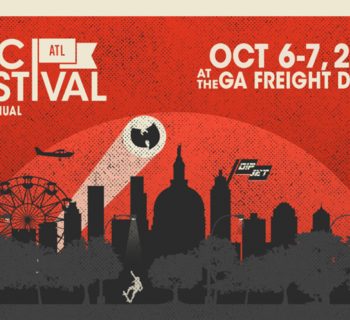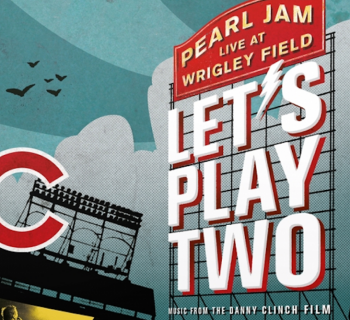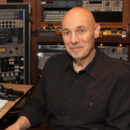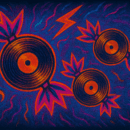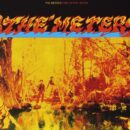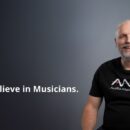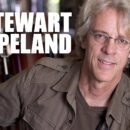Once again, Music Connection delivers stacks of exclusive insights into the world of artists and repertoire—A&R—from a cross-section of executives at three eminent record companies. A&R reps are the lifeblood of labels; the hunter-gatherers. Without them, the music industry would doubt- less only represent a mere sliver of what it’s become and many of today’s celebrated artists would likely still hold day jobs. We dig deep into the ways that A&R reps think, how they help labels find and assess talent and what the future holds for artists and the industry alike.

Steve “Stevo” Robertson
General Manager/SVP of A&R
Atlantic Records Nashville - Pop and Rock
atlanticrecords.com
How did you get into A&R?
I was a DJ at a classic rock station in Miami. I was the youngest person there in the late ‘80s and was really into the new alternative bands. Later, I got the job as program director at WJRR in Orlando. This was before radio went fully corporate and I was able to pick the records that we added every week. Over time, unsigned bands started to send me their stuff. There was a band from Atlanta called Collective Soul that wasn’t signed and they sent me their album with the song “Shine” that I really liked. I started to play it and the phones lit up. We set up a showcase for Atlantic and they signed them. That’s when people started to say that I should do A&R. I found other unsigned bands––Seven Mary Three and Tabitha’s Secret, [which later became Matchbox Twenty]. They both ended up on Atlantic, so they hired me to do bands for them full-time.
Who are some of your most memorable signings?
I discovered Collective Soul and signed Shinedown, Paramore and Seven Mary Three. Since I moved to Nashville, I’ve partnered with Warner Music and Cris Lacy, who’s a great A&R person there. I also have a band called Rainbow Kitten Surprise. I signed them with my friend Gregg Nadel at Elektra. They’ll be a band that people know. There’s also an established band I’ve signed that I can’t talk about yet.
What is your primary function?
Artist discovery, artist development and being a sounding board for them. I set the bar for quality of songs and material. I determine expectations for the artists by introducing them to producers, engineers and perhaps songwriters they can work with to make the best songs possible.
How do you find new talent?
YouTube, Soundcloud and similar sites. Clicking on links has replaced going to the clubs in many cases. But once we identify a band online, we still have to see them live. The days of wandering around to random clubs hoping to find a band are gone, thankfully. I also network with managers and attorneys.
How heavily do you rely on contacts––professional or personal?
Very heavily. I did my job in Orlando out of my house for the first 17 years. Getting into a music community as I did when I moved to Nashville three-and-a-half years ago has been the best thing I could have done for my career.
What’s one of your favorite signing memories?
In the beginning, there was 15-year-old Hayley Williams, now the singer of Paramore. As soon as we’d signed her, she told us “I don’t know what you’re thinking, but I’m not some Avril Lavigne pop singer. I have a band and we write our own songs. You should come see us.” We went to their showcase in the bass player’s parents’ living room. He was only 15 and the drummer had just turned 13. It’s one of my favorite stories because we followed the artist’s vision and recognized it as being something unique. That set the table for everything that was to come with Paramore.
How do you gauge or measure talent?
We have a research department at Atlantic, like every major label. They dig down deep into Spotify, Apple Music and SoundCloud and look for artists by crunching the numbers. We try to catch them before they become big. We can measure an artist’s potential. But I don’t think you can measure talent, other than ears and gut. That’s what I rely on.
How important is an artist’s team in your decision to sign or not sign them?
Management is massively important. A bad manager, or one with a less than desirable personality, can kill a deal no matter how talented the artist is. Conversely, a great manager can sweeten the deal.
How do you bring a fresh perspective to your A&R efforts?
You have to have young people around you if you’re going to stay current. I have two A&R [reps] in my office that are both in their twenties. They constantly bring in things that excite them. We talk about it and research artists that might be in that scene and try to figure out what’s going on. It’s a youth business and you have to surround yourself with youth.
What trends do you see for the future?
It’s an urban, hip-hop world right now and that’s been one of the most interesting developments: everything feels and sounds urban. That’s a trend that’s not going to fall off a cliff anytime soon. People talk about the return of guitar-based rock. There are little glimmers of hope for people that like a three- or four-piece guitar-based rock band. I’m looking for the return of rock, but I don’t think it’ll sound exactly like Led Zeppelin. There’s a hip-hop influence that I look for when I search for new rock acts. That will continue to be a big part of rock and alternative rock.
How do you prefer to be contacted?
Email. It helps keep me organized, although it takes me a while to get to everything. •
 Allison Jones
Allison Jones
SVP of A&R BMLG
Big Machine Label Group
bigmachinelabelgroup.com,
Instagram: @alliej0308
How did you get into A&R?
I did an internship with RCA Nashville while I was at Vanderbilt and then landed an A&R assistant position to Joe Galante with BNA in 1991. Then I did A&R for James Stroud at Giant Records. When he was tapped to run DreamWorks Nashville, I went with him until Universal purchased DreamWorks and then I followed him to Universal Nashville. I left to work with Toby Keith when he started Show Dog. Scott Borchetta was building Big Machine at the time––we worked together at DreamWorks––and I was still secretly sending him songs. As much as I loved Toby, I knew Scott had the vision to build what the label has become. I’ve been here now for nearly 11 years.
Who are some of your most memorable signings?
Thomas Rhett, Florida Georgia Line and Carly Pearce. I’m proud that they’re all unique and have carved their own niche. Early on, I didn’t sign Lorrie Morgan but I found songs for her. It was an amazing opportunity to earn the trust of a female superstar, right out of college. It was baptism by fire. At Giant Records, the first artist that broke open was Clay Walker. It was the first time I worked with someone from the ground up who was my same age. It was a crucial part of my A&R education, for which I’m grateful. At DreamWorks, we signed Toby [Keith]. “How Do You Like Me Now?!” propelled him to superstardom. I learned so much from him because he was super-convicted. I hope I still hold a healthy amount of that in what I do today.
What is your primary function?
I’m head of A&R for all of our country projects––Big Machine, BMLG Records and The Valory Music Company. The main duty is to look for new superstars; new talent; new songs and songwriters. For our established artists like Reba [McEntire], Ronnie Dunn and Rascal Flatts, it’s to support them and their careers, find them songs, help with recording budgets and deadlines––anything that goes into making the record, getting it produced and turned in by the deadline.
How do you find new talent?
Finding songs is still the same [as when I started], but the way that I receive and distribute them now is far more time efficient. There used to be more personal interaction. Now the majority of what we look for is completely online, whether it comes to me via email or by scouring social media. We have an artist now that we’re trying to sign that came to us completely via YouTube. There’s another that came to our attention because of their Instagram numbers. There’s still the traditional way. Midland came to Tali [Canterbury] on my team when she got wind of a top-secret showcase for another label. I turned up and sat in the front row. After the show, I stayed and took Midland to dinner. The next day I told them they had to meet my boss. They didn’t even have a social media account.
How heavily do you rely on contacts––professional or personal?
So heavily. My biggest fear is that I’ll miss an email or call from a trusted contact. I rely very heavily on my contacts.
What’s one of your favorite signing memories?
Carly Pearce. She lost her deal at Sony as a result of a restructure. She came and met with all the labels. We didn’t have the space for her and she didn’t have the song yet. She needed to find her footing again, but wouldn’t give up. She kept writing. Usually when an artist loses their deal it’s not easy to keep the momentum going, but she was tenacious. She dropped her new song “Every Little Thing” on iTunes and people raved about it. It tore my heart apart and was a career song. Carly never gave up, never listened to the word “no” and never lost her good attitude.
How do you gauge or measure talent?
For me, it’s gut. I wish there was a rating system, because we’d all be a lot more successful. I love different things for different reasons.
How important is an artist’s team in your decision to sign or not sign them?
In a perfect world, you’d love the whole team. Ultimately, if we love and believe in an artist, it’s all about the artist. In this business, you’ll work with all different types of personalities. My strength is knowing how to interface with all different types.
How do you bring a fresh perspective to your A&R efforts?
I try to stay inspired. The minute I stop loving music, that’s when I should reevaluate.
What trends do you see for the future?
All bets are off, because with the streaming services there’s so much genre-bending. The minute we say “Everything is going country,” then other things progress. Each artist has to set their own trend that’s true to their music. With streaming services, we may see consumers peruse more genres than they would have in the past. With Florida Georgia Line, I’ll bet a lot of country fans now know who Bebe Rexha is.
How do you prefer to be contacted?
If an artist doesn’t have an affiliation with someone legitimate like a publisher or attorney, I ask for them to direct me to their social media site or YouTube. They can also go to the Big Machine website A&R tab or my Instagram.
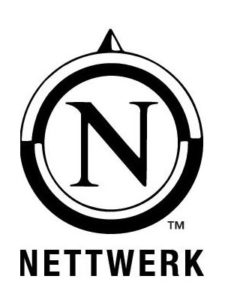
Tom Gates
SVP, A&R and Strategy
Nettwerk Records
nettwerk.com
How did you get into A&R?
I used to look at liner notes and scream at the record company in my head for choosing the wrong singles or going with the wrong imaging. I didn’t even know who I was yelling at. I’ve worked at Nettwerk for an aggregate of 15 years. They’ve always encouraged me to do A&R here, even as I was a manager [for bands] or any of my other roles.
Being a manager, you’re very much involved in A&R. You see the guts on a daily basis. It was just recently that I switched completely over to A&R and strategy. I managed bands such as Brand New, Mike Posner and Christina Perri. I was working in promo at Arista and couldn’t do it anymore. Terry [McBride, Nettwerk Chairman & CEO] saved me from that.
Who are some of your most memorable signings?
We work as a team here at Nettwerk so I wouldn’t say that I’ve signed anyone in particular. I can tell you that as a label our most successful artist in the past few years has been Passenger. We signed him when he was a street busker and worked his song “Let Her Go” for about 18 months before we broke it.
That’s something we like to do here: find someone we’re passionate about. We’re like the dog with its teeth in your ankle: we won’t let go. The label was founded to release music for managed clients, like Sarah McLachlan.
What is your primary function?
I’m out there looking; going to shows. And I work with a lot of the stuff that we have internally. It’s either come internationally or it’s very early in their career. Terry allows me to do a little of everything. It’s a dream job.
How do you find new talent?
I’m pretty old-fashioned in that I rely on relationships and word-of-mouth. I poke my head into the streaming world and have found things there. But the day that I rely on streaming as my sole A&R source is the day I pick another job. There’s greatness out there, but I prefer to know who the artist is, what they stand for and what their point of view is before I start to work with them.
There are many ways I’ve got to know artists. One is to share a Spotify playlist. A symbiotic understanding develops as you add songs. It sets a sonic palate.
How heavily do you rely on contacts – professional or personal?
I’m getting older, so my relationships are only getting stronger. My generation has finally grown up, so I rely on them quite a bit. We do have data-driven A&R and junior A&R reps. We encourage anyone here––from the person answering phones to the sales team––to bring something in. Generally, an A&R person will be attached to it, but that person will stay with that project.
What’s one of your favorite signing memories?
When I moved to LA, someone told me about a waitress who had a great voice and I thought “Right. A waitress in Los Angeles. I won’t hear that story over and over again.” But I had coffee with her and it turned out she did have a great voice. We made some demos and, independently, she ended up on a TV show [So You Think You Can Dance]. Within eight weeks of working with her, she was selling 80,000 to 90,000 downloads a week. And her name’s Christina Perri.
How do you gauge/measure talent?
The directive at Nettwerk is that we [must] feel passionate about an artist. Because we started as a management company, A&R is more than just making songs. It’s the 360 of the artist’s career. If you’re passionate about that artist, you’ll do battle for them on many fronts. That’s number one. Songs are number two. One thing we like to know is if an artist understands where they’re coming from. So many things are getting signed so early these days that I worry that young artists haven’t had time to mature fully and may be getting their shot too early. We like to intersect with an artist when they have an idea of who they are, however nascent it is. We also like to develop and foster an artist’s vision.
How important is an artist’s team in your decision to sign or not sign them?
We’ve had so many cases of artists that come in even without management that we’ve had great careers with. It comes down more to the artist than their team. We love having a good group around them, but we’re not averse to pinch-hitting for an artist too. That also comes from being an independent label. We’re more willing to supplement anything that needs it.
How do you bring a fresh perspective to your A&R efforts?
By talking to young people: kids that are out listening to music, people at our label, folks I know at the LA Songwriters Collective, band members. I also pay attention to playlists, which turns me on to quite a few things I might not know about. In many cases, it’s stuff I don’t even like. But I need to know it’s out there. It’s a constant refresh on your musical tastes.
What trends do you see for the future?
Bedroom artists making rock music. I want good-old rock & roll to come back. I’m starting to see more and more kids pick up guitars.
How do you prefer to be contacted?
By any means necessary. The more innovative, the more interested I am. I’ve had an open-door policy for as long as I’ve been in this industry. I’ve found some amazing artists by doing that. If someone emails me their music, I’ll put it in a folder and at the end of the week I’ll listen to it. Usually I’ll reply. About 10 percent of the stuff I’m sent interests me. [But much of it] is at a point early in an artist’s career when they shouldn’t be sharing music. They should still be growing. I’ll tell them that too, although they may not want to hear it. •
 Livia Tortella
Livia Tortella
Founder and CEO
Black Box
blackbox.la
Black Box is a branding, marketing, development and management company that services labels, publishers, managers and artists. Launched by
Canadian Livia Tortella in 2015, the Los Angeles company now boasts a roster of 30 clients. The inspiration for Black Box came when Tortella saw an opportunity to help artists develop early in their careers.
What are the main services that you provide?
Digital relationships/partnerships, publishing––posting for artists––and we have a great network of creative content producers. We also have connections with producers and songwriters, as well as project management for artists that are trying to do it without a label.
How do you gauge or measure talent?
We have a group of young, vibrant people. When [potential] clients submit music, we always evaluate their capabilities and look at their team. Even if it’s not fully there, we can tell that there’s a level of talent. We’re good at generating playlist exposure and things like social publishing, but we don’t offer those services à la carte.
What are the best things artists can do to prepare themselves to work with you?
Be prepared to work hard and be open. Look under the hood to understand your brand and what you’re trying to communicate to your fans. When we first meet with an artist, we sit down with them for three hours and do a deep dive on them personally.
What would make you turn down a prospective client?
When they’re looking for specific elements of the experience. For us, it’s about partnering with an artist that has the same goals: trying to build an audience for themselves and not trying to get gatekeepers on board.
When artists come to you, do you see a common weakness that they have when it comes to projecting their brand and image?
I don’t see it as a weakness. When artists come to us, they know there’s something missing and they’re looking to hone in on it. I find an incredible strength in that.
What big changes do you foresee for the music industry that will directly affect you and your clients?
Because we’re not a label, we’re on track to capitalize on a global marketplace. I’ll get more clients from all corners of the world. There’ll also be greater competition in the digital service provider’s world. Amazon and YouTube will come through big. •


